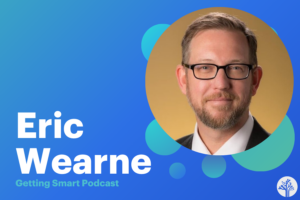New Zealand Leads the Way on Competency-Based Learning: Part 2

This post was originally published on the iNACOL blog.
In 2016, I was invited as an Eisenhower Fellow to the 2016 Colloquium on Competency-Based Learning and Assessment (CBLA) in New Zealand. This Colloquium explored competency-based learning and assessment systems and their impact on equity. Attendees built consensus and exchanged ideas on global education systems transformation and educational innovation for equity.
In part one of this series, I highlighted New Zealand’s educational research underpinnings, their move toward equity, how their cultural roots play a role and how a standards-based system is probably best suited to assessment for learning in real time.
Here are other takeaway notes from various leading New Zealand experts and thought leaders in CBLA and teacher judgment.
(K)new Approaches to Teaching and Learning
|
Assessing Literacy with ESOL and Newcomers
|
New Zealand’s Vocational Pathways: Relevance, Coherence, Clarity
|
Youth Guarantee Framework
|
Recognition of Prior Learning: A Case Study
|
Trades in Education and the Impact of Technology
|
CBT Project: Village Court Officials and Land Mediators: PNG
|
9 Conclusions
- Value to the learner: Compliance qualifications are not productive. Assessment should have meaning to the learner. Evidence: the ultimate value is in the eye of the end user.
- Equity and fairness for how people learn creates the best learning environments.
- Progress on mastery: Self-paced and self-driven learning where each student is a cohort of “one.” Learning is hinged on the quality of evidence of work, not by the delivery model. Knowledge, skills and employability skills/dispositions are important and should be recognized by employers, communities and society. What would happen if industry recognizes the evidence and/or micro-credentials of skills for learners indicated in a learner profile or through powerful evidence?
- Evidence and judgment statements with SSBs and qualifications: Cultural contexts are inside and outside formal systems. When rethinking assessments, we need to align them with the learning process.
- Building educator capacity: We need to set a high bar for quality, train assessors, invest in building educator capacity for professional judgement and comparability, and develop student capacity.
- System architecture for competency-based learning system: To develop assessments for learning, we need to design feedback loops and next steps. Assessment processes drive the teaching and learning systems.
- Focus on pathways: From secondary to tertiary education and workforce training, there should be multiple pathways of attaining competencies, and pathways should be aligned to what employers need and integrated across subjects, courses and domains.
- Learner Profiles/Student’s Record of Achievement could be a huge lever for system change. Clear goals build learner agency and cultivate purpose. They offer options through non-linear pathways. (Picture these as learning maps or a GPS for personalized learning pathways.) We need to focus on allowing micro-credentials for knowledge, skills and dispositions within the student’s record of achievement and e-portfolio of evidence.
- Recognition of Prior Learning: Who can drive the recognition of prior learning? The process of recognizing prior learning includes: recognition, validation and accreditation (RVA). This is a core concept in CBLA.
Prediction: Disruption could happen by identifying mechanisms/value–such as the direct value to learners or employers and quality of evidence (micro-credentialing). How do you open multiple pathways and enable micro-credentialing?
Next steps: What barriers are in the way? What are the solutions (i.e. funding, no limits on how fast or how far learners can go)?
CBLA Principles:
- Analysis of the learners (background, knowledge, skills and competence of learner upon entry).
- Systems support multiple pathways for learning and for assessment processes.
- Culture of learners taking responsibility for learning.
- Standards need to be outputs-focused (not inputs-focused) and provide evidence.
- Build a marketable identity that is recognized and valued by employers (build cultural capital).
- Common understanding of language.
- Expert assessors in assessment.
- How do you train your assessors and support your assessors for systems continuous improvement? What systems are in place (ongoing for assessment management; support and ongoing PD for assessors; quality assurance around qualification)?
For more information, the report on the Colloquium for Competency-based Learning and Assessment in Wellington, New Zealand is online here.
Stay in-the-know with all things EdTech and innovations in learning by signing up to receive the weekly Smart Update.





0 Comments
Leave a Comment
Your email address will not be published. All fields are required.